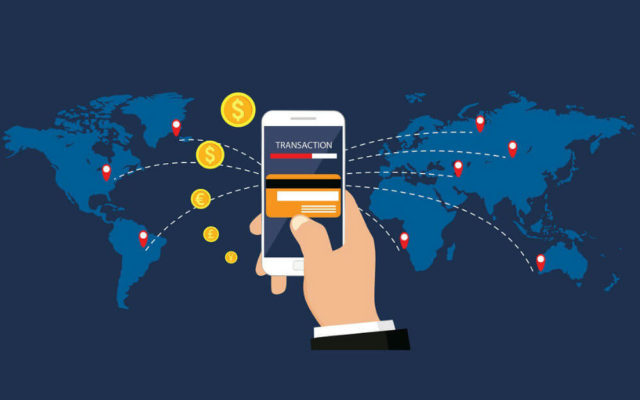Like so many others, the banking and finance industry is undergoing a huge transformation brought on by modern technologies. There’s this ongoing merger between traditional financial services and more modern ones, which results in the deployment of financial-oriented tech, or what’s known as FinTech.
Mobile banking is a great example, but so is the widespread adoption of blockchain and IoT. Some of the newer technologies — emerging, you could say — will have the most impact going forward.
That’s why it’s important to stay on top of what’s happening, at least as much as possible. In light of that, here are some of the more promising trends the finance industry is experiencing.
The rise of cryptocurrencies and blockchain tech
As everything in the world makes a shift to digital, we also have to upgrade our analogue processes and systems to keep up. Fiat and physical currencies are, for all intents and purposes, quite outdated in today’s landscape.
In fact, few people pay with cash anymore, especially when you consider e-commerce and online retail opportunities. Mobile has also brought about this change thanks to online and app-based payment solutions, as well as instant pay opportunities with the help of NFC and Bluetooth.
That doesn’t necessarily mean we should move away from traditional currencies — they just need a little upgrade. Hence, the rise of cryptocurrency or similar virtual coins.
Behind them is blockchain, a digital ledger and transactional network for carrying out the transfer of virtual currencies and data. What makes it appealing is how decentralized the system is, seeing as no central entity or organization controls it.
Admittedly, that concept is pretty scary to most financial and traditional banking enterprises who are used to strict regulation, but still, there’s no denying the potential that exists.
Blockchain can help speed up the lending and financial transfer process in many ways. For instance, it connects two authorized and reliable parties, cutting out all the middlemen. It can also improve traceability for connected funds when they are exchanged, as well as reveal how those funds are used elsewhere along the chain.
Additional problems the blockchain can address are high fees and delays associated with funds transfers, fraud and crime, along with the reliance on intermediaries who often delay or extend the length of time a transaction takes place.
Artificial Intelligence and Machine Learning
AI and machine learning in finance can help decrease costs, enhance revenue, reduce fraud and security risks, and improve the entire customer experience. This is achieved primarily through automation, where an AI tool or platform takes the reigns and handles rote tasks.
Think chatbots for customer support, only the AI here would be used in a more financial-oriented way.
Bank of America’s intelligent assistant Erica is a great example. Along with assisting customers, it can streamline management and human planning, augment sales and help enhance operations. JPMorgan currently uses AI to analyze legal documents through their COiN tech.
Digitization and Mobile Support
It’s no secret that everything is going digital, and that means all existing forms of business are being upgraded and augmented to this end. Banks have made a push to digitize their operations by deploying mobile and online banking solutions, as well as many supporting platforms.
As this technology becomes the primary focus for most businesses, we will see a huge shift in innovative applications. Consumers already expect to be able to interact, reach out and utilize certain tools via digital and online systems. But this extends to regular employees, as well.
It is so rampant that analyst firm McKinsey & Co. issued a memo specifically to CFOs, warning them to adopt digital finance or “get left back.”
It expressly mentions technologies such as automation and robotics, data visualization and data analytics, and, of course, mobile solutions. The latter is truly important because consumers have come to expect some kind of online and mobile support from their banks.
Personal online banking allows you to carry out many activities and actions you would have otherwise only been able to do in-person at your local branch in the past. You can transfer funds, view balances and transaction history, suspend or apply for new debit cards, activate personal alerts and even get in touch with a live support crew.
What’s so amazing about it? Well, no one even has to leave their home to take care of banking duties anymore.
Just scratching the surface
Something important to note is that this list includes merely a handful of applications for the technologies mentioned above, as well as a fraction of what’s happening in the finance industry. Technology is changing so rapidly that it’s tough to keep up with the bleeding edge.
Rest assured, everything from blockchain and crypto to mobile banking will prove to be transformative for the entire industry — if they haven’t already.
Article by channel:
Everything you need to know about Digital Transformation
The best articles, news and events direct to your inbox
Read more articles tagged: AI, Blockchain, Featured, Machine Learning









